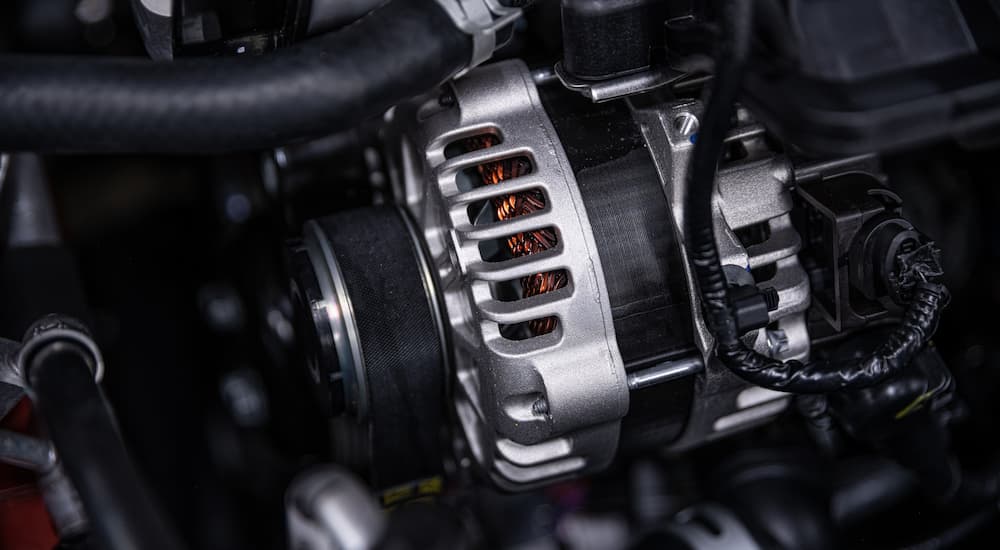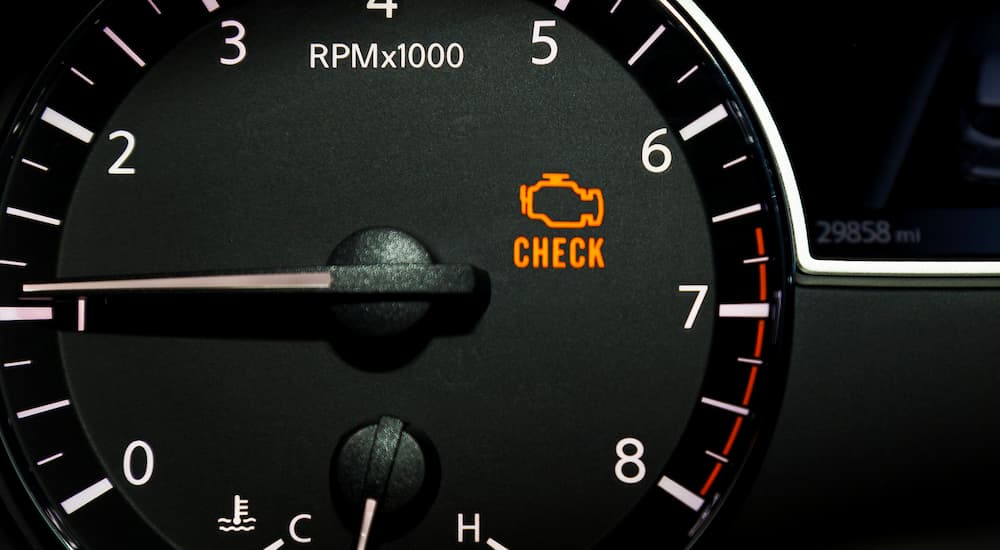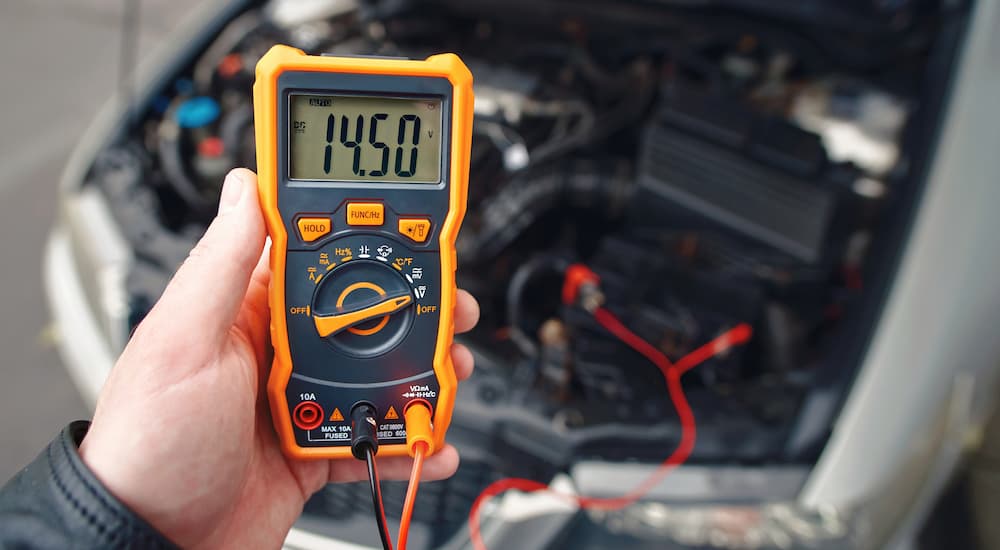Check Out Our Youtube Channel! Click Here

It’s Thursday morning, and the weekend is so close you can practically taste it, but getting going when the sun’s barely up has become more difficult as the week drags on. So you’re running late, scrambling to make sure you have your phone, wallet, purse, keys, and whatever else you need to get out the door. You get into your car with no time to let it warm up, but you’ll worry about that later; you turn the key or push the button, and… nothing happens. You try again—still nothing. Your car won’t start, and now, officially, you’re having a bad day.
At this point, it can be tempting to go back to bed or mumble, “car repair near me,” at your phone in defeat, but instead, we suggest this: get active. This is the moment to push ahead and keep going forward, solving your problems and refusing to let the day get on top of you. To start, let’s see if we can figure out what has gone wrong with your vehicle because there are a few different things that are typical culprits when your car won’t start like that. One of the most common issues is a bad or failing alternator, so let’s learn about alternators and some ways to tell if yours is going bad or about to fail—that way, you can avoid a morning like the one we just described and keep it purely hypothetical.
What Is an Alternator and How Does It Work?
In order to tell if you have an issue with your vehicle’s alternator, it helps to understand exactly what it is and how it does its thing. Many people assume that the electrical systems in their vehicle—automatic windows, door locks, air conditioning, sound system, heated seats, etc—are all powered by the battery in their car. That’s what batteries do, but that’s not the case.
Your car’s battery can deliver an impressive amount of power, but it’s designed to work briefly and then stop. What your battery does is pretty simple: it provides power to your vehicle’s starter, ignition coils, spark plugs, and other parts that get your engine started. Once your engine starts, your battery’s work is essentially done. From there on, the alternator does its thing and provides power to your vehicle. The alternator, by the way, looks like a small cylindrical generator and is typically attached to your engine or very close to it.
As your engine runs, it sends power to your axles/wheels so you can move, but it also sends power to the alternator. It does this through a serpentine belt or drive belt, which connects a pulley on the engine’s crankshaft to a pulley on the alternator, transferring mechanical energy from the engine to the alternator. This turns a rotor shaft in the alternator, which spins magnets to create an electromagnetic generator, generating electricity in the form of alternating current (AC). A rectifier in the alternator then turns that into direct current (DC), which is used to charge your car’s battery and provide power to all of your vehicle’s electrical systems.
In theory, all things being equal, the alternator should last throughout the lifespan of your vehicle because it’s designed to do a lot of work for a long time. As we all know, however, things aren’t equal when it comes to our vehicles, and it’s entirely possible for issues to arise with alternators. This can happen for a wide range of reasons, from overuse or overheating to damage from an external source or even exposure to too much water. So, how can you tell when a problem with your vehicle is due to the alternator? Well…

Common Signs Your Alternator Is Failing
For starters, a failing or faulty alternator will often manifest in a way tied to your car’s electrical system. Since it’s responsible for the electrical system functioning properly, issues typically come through that way. Still, figuring out where a problem lies can be tricky, so let’s look at some common things to watch for.
A Warning Light on Your Dashboard
The easiest way to tell you have a problem is when your vehicle tells you. You might have an “Alt” or “Gen” light on your dashboard, but many vehicles will illuminate the battery light even for an alternator problem. Diagnosing the specific issue from here can be tricky, but it’s a great place to start and narrows down your options.
Dim or Flickering Lights
One of the clearest signs of an alternator issue is if you notice your lights are dimmer than they should be or flicker between full and reduced brightness. This typically means your alternator isn’t delivering power properly—though it could be another issue with wiring or your electrical system. Similarly, if your lights are brighter than usual, this can mean your alternator’s voltage regulator is failing.
Malfunctioning or Slow Accessories/Features
Since all of your accessories and car’s features are tied to the electrical system and rely on the alternator, issues with them can be a clear warning sign. If just one window is slow to go up and down, then it could simply be the motor on that window. However, if all of your windows are slow or your speakers aren’t working clearly, then they might not be getting enough power.

A Dead Battery
This is a tricky one because a dead battery typically makes us assume the problem is, spoiler alert, the battery. But that’s not always the case. If your alternator isn’t working properly, it won’t recharge your battery as it’s supposed to, and your battery could be working overtime to power your vehicle. Have your battery tested, or use a voltmeter to check your battery and find out if it’s the issue or if your alternator isn’t pulling its weight.
Difficulty Starting Your Vehicle
This warning sign ties into the previous one: if your vehicle isn’t starting easily, then it could be an issue with the battery—which might be caused by the alternator. Clicking sounds or slow cranking when you try to start your car often indicates a faulty battery, but the alternator could cause this. If your vehicle is stalling frequently in addition to having problems starting, then that likely means your alternator isn’t working properly, which is the bigger problem.
Strange Noises—Growling or Whining
Strange sounds are always a good warning sign to look for when it comes to a variety of car problems, and your alternator is no exception. If you hear whining or growling from your engine, this is often an indicator of an alternator in trouble. It usually means a belt isn’t set properly or the rotor shaft isn’t aligned correctly anymore—this could be a fairly simple fix, or you might need an all-new alternator.
Strange Smells—Burning Rubber or Hot Wires
There are a lot of potential smells to be mindful of when driving, which can indicate different issues with your vehicle. The smell of burning rubber often means you have a problem with the alternator, as does the scent of hot or burning wires. If you have ever been near an electrical fire, you probably know what this smells like. It’s an indicator that your alternator is overheating and starting to destroy itself; get it fixed or replaced immediately to prevent bigger issues or serious damage to your vehicle.
What to Do Once You Find the Problem
As you can see, there are quite a few warning signs when it comes to your car’s alternator that you should be aware of. Knowing to look for these things and what they mean can be the difference between noticing an issue before it becomes a major headache and finding yourself stuck in a very bad day. Always be mindful of strange sounds or smells coming from your vehicle—particularly the engine—and watch for things like dimming lights or slow electrical systems that can warn you about an issue before things stop working. Some alternator work is easy to do yourself if you have some experience, like replacing the serpentine belt, but other repairs are more complicated. Here at Spirit Chrysler Dodge Jeep Ram, our certified service center is always happy to help with anything you need and get you back on the road.








